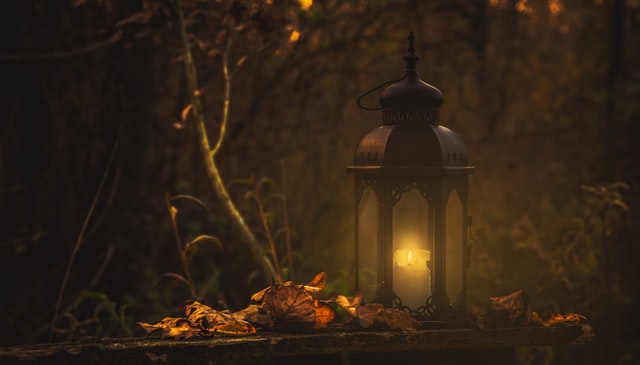The brothers Grimm, Jacob (born 1785) and Wilhelm (born 1786), had six younger brothers and a sister. What kind of storytelling took place in their childhood household? Somehow these brothers were charmed. With them, pregnant charm became prolific sagas. As a result, the brothers Grimm collected hundreds of fairy tales and passed them on to us.
The brothers were also captivated by words. So toward the end of their lives, they focused on writing the first German-language dictionary. Having completed the letter D, Wilhelm died in 1859. Jacob, his older brother, lived another four years, completing the letters A, B, C, and E. Working on Frucht (fruit), Jacob collapsed at his desk – like a cowboy dying with his boots on.
In 1883 – twenty years after Jacob Grimm’s death – these English words translated his German words: “A yet stronger power lies in the spoken Word, and all nations use it both for blessing and cursing. But these, to be effective, must be choice, well-knit, rhythmic words, must have lilt and tune; hence all that is strong in the speech wielded by priest, physician, magician, is allied to the forms of poetry.” (Jacob Grimm, “Teutonic Mythology,” translated by Stallybrass, 1883)
If the translator, Stallybrass, were present, we would say: “What a skilled translator you were – to use words that have their own lilt and tune.“
Poetic words can charm us – from Latin – “carmen” – “song, verse, religious formula.” That definition sets us to pondering. “Religious formulas” have been vitally connected with the lilt and tune of “song and verse!” According to this word history, true religion has its own muse – its own charm – its own music. Carmen comes from “canere,” – “to sing” (see also “chant” and “enchant”). Think of a “canary” singing its heart out.
Words can also have an allure – Old French “aleurer “- “to attract, captivate; train a falcon to hunt,” from “à”- “to” + “loirre” – “falconer’s lure.” Words can entice the soul to sing and soar.
Ah, but too often, words do not. The words themselves may be at fault – false or fickle – or we may not trust the one who speaks them. Or we may be distracted or discouraged. Violence of some kind may be afoot – perhaps the reader or the language has suffered from some kind of abuse. We may seek alternatives – cheap thrills to entertain us temporarily. We could cynically surmise: Words that could make the soul sing and soar would be too good to be true.
In our arrogance, we may miss the muse of the word music because we think we know better. Consider this illustration: in 2003, the completed Brothers Grimm Dictionary, now with 331,056 entries, finally became available online after the work was delayed five years. Why so long? The typing had to be outsourced. Native German speakers tended unconsciously to correct what they assumed were spelling “mistakes” of entries. Instead, the entries were obsolescent – but true – spellings. As a result, two groups of typists in Nanking, China, were hired to key in the entries.
Those of us who say we follow Christ can also miss his words or music – making habitual “corrections” based on our own presumed familiarity with God’s music. But our “edits” are not found in the original score. So, we contribute to cacophony instead of the symphony.
Still, some words give our souls lilt and tune. The Bible tells us that God sings with words; his Spirit soars with words. Created in his image, we resonate. Recognizing that Jesus is the choicest possible Word made flesh, we have new ears to hear and new hearts to respond. The deepest parts of who we are in Christ have been charmed and allured. There is more than demand and failure, drudgery or speed, despair or superficiality. Retuned, we echo God from our core.
And as great as creation and redemption are, there is still more. This profound attraction – words helping our souls sing and soar – is a very present phenomenon – poetry – a written or spoken work of art. So Paul tells those who follow Jesus: “We are God’s ‘workmanship’ (Greek: ‘poema’), created in Christ Jesus to do good works, which God prepared in advance for us to do (Ephesians 2:10).
Regular folks like us are more than we appear. We are poetry in motion – works in progress. As we read the Brothers Grimm stories – like Cinderella, Rumpelstiltskin, Sleeping Beauty, Hansel and Gretel, and Snow White – we implicitly realize that we are unfinished stories, too – being narrated by God. What verbs, what metaphors have been/will be written into your story poem this day?
Creature, created in Christ, in you there is charm, allure, and poetry – revealed or soon to be revealed!



